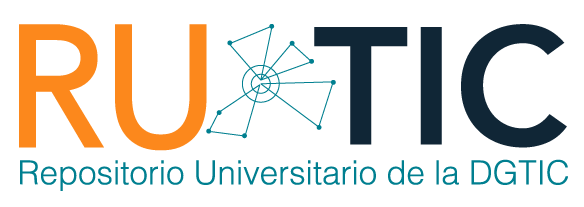| dc.contributor.editor | Adrián Estrada Corona | |
| dc.coverage.spatial | MX | |
| dc.date.accessioned | 2018-06-28T04:45:02Z | |
| dc.date.available | 2018-06-28T04:45:02Z | |
| dc.date.issued | 2009-04-10 | |
| dc.identifier.uri | https://ru.tic.unam.mx/handle/123456789/1486 | |
| dc.description | Tema del mes | |
| dc.description.abstract | Los alimentos transgénicos están en la mesa de los consumidores de muchos países en el mundo desde hace ya casi quince años. A lo largo de todo este período, el debate en torno a la seguridad de los mismos no ha cesado. Por un lado, las compañías biotecnológicas productoras de organismos genéticamente modificados, apoyadas por un sector de la comunidad científica (a veces ligado directa o indirectamente a los intereses de las mismas compañías), afirman que los alimentos transgénicos son seguros, que ningún alimento en la historia ha sido tan escrupulosamente evaluado y que no hay evidencia científica de que puedan provocar daños en la salud del consumidor. Por otro lado, estudios científicos independientes encaminados a investigar los efectos a largo plazo en la salud humana, indican posibles efectos adversos en el organismo de animales de laboratorio alimentados con alimentos transgénicos | es_MX |
| dc.description.abstract | Genetically modified (GM) foods have been on the table of many consumers around the world for almost fifteen years. Throughout this period, the debate on GM foods security has not stopped. On one hand, the biotechnological companies producing GM organisms, supported by a percent of the scientific community, say that GM foods are safe. They also afirm that any food in history has been so scrupulously evaluated as GM foods, and damage on consumers health has been not scientificaly proved. On the other hand, there are independent scientific studies that have investigated the long-term effects on human health and indicate possible adverse effects on the health of laboratory animals feed with genetically modified foods. There are many opinions but few precise, objective and reliable datas about the potential risks associated with the consumption of GM foods, even when these risks should be considered before introduction to the market. Current knowledge about genetically modified foods are not enough. In order to evaluate objectively the possible risks it is crucial that the international scientific community assume the challenge of making relevant studies | en |
| dc.format | html | |
| dc.format | application/pdf | |
| dc.format.extent | 5,64 KB | |
| dc.format.extent | 256,77 KB | |
| dc.language | spa | |
| dc.publisher | Universidad Nacional Autónoma de México. Dirección General de Cómputo y de Tecnologías de Información y Comunicación. Revista Digital Universitaria | |
| dc.relation.isformatof | http://www.revista.unam.mx/vol.10/num4/art24/art24.pdf | |
| dc.relation.ispartof | http://www.revista.unam.mx/index_abr09.htm | |
| dc.rights | openAccess | |
| dc.source | Revista Digital Universitaria (1607 - 6079). Vol.10, No.4 (2009) | |
| dc.subject | Alimentos transgénicos | |
| dc.subject | Alimentos -- Medidas de seguridad | |
| dc.title | Alimentos transgénicos ¿Qué tan seguro es su consumo? | es_MX |
| dc.title.alternative | Genetically modified foods: How safe is its consumption? | en |
| dc.type | article | en |
| dc.contributor.director | JULIA TAGUEÑA PARGA | |
| dc.subject.keywords | Alimentos genéticamente modificados, Riesgos en la salud humana, Seguridad alimentaria, Transgenic foods, Food - Safety measures, Genetically modified food, Human health risks, Food safety | |
| dc.identifier.url | http://www.revista.unam.mx/vol.10/num4/art24/int24.htm | |
| dc.creator | María del Rocío Fernández Suárez | |
| dc.rights.url | http://creativecommons.org/licenses/by-nc-sa/4.0 |
Files in this item
This item appears in the following Collection(s)
COMPARTE
BÚSQUEDA
Escriba el texto a buscar en DSpace
CONTACTO
El Repositorio Universitario de la DGTIC se edita en la Dirección General de Cómputo y
de Tecnologías de Información y Comunicación (DGTIC), de la Universidad Nacional Autónoma de México (UNAM)
Circuito Exterior s/n, Ciudad Universitaria, Coyoacán, C.P. 04510, México, D.F
Tel: +(52) (55) 56228166 Email: rutic@unam.mx









 ¿Qué es un repositorio...?
¿Qué es un repositorio...? ¿Qué beneficios obtengo...?
¿Qué beneficios obtengo...? ¿Qué tipo de recursos...?
¿Qué tipo de recursos...? Preguntas frecuentes
Preguntas frecuentes